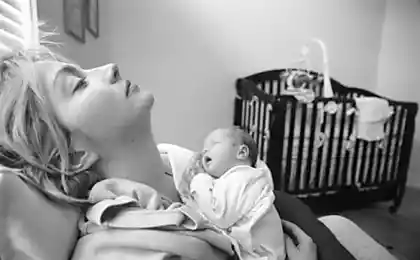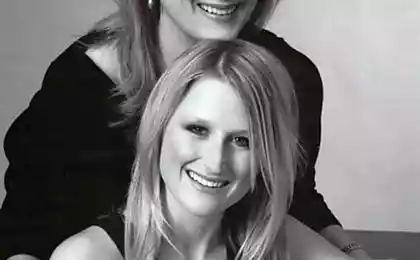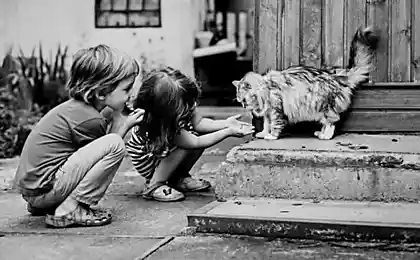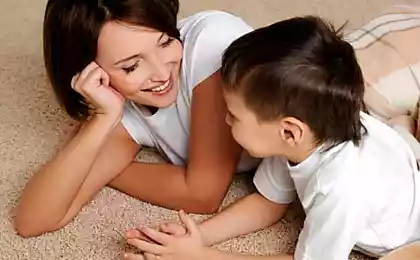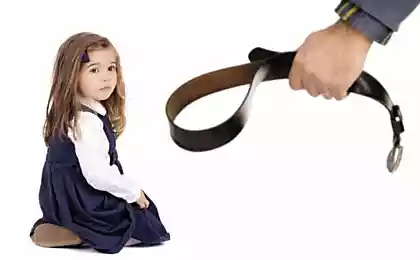238
7 Fatherly Skills Every Mother Should Have

When it comes to parenting, it can be hard for moms to admit that men are often as good at things as women (and in some cases even better). According to psychologist Nancy Buck, women often come to motherhood with the erroneous belief that they are naturally better at parenting. However, the reality is that both men and women tend to have different parenting styles, and children should benefit from both. Read on to learn seven classic fatherly approaches to parenting and childcare - and parenting lessons you can take from them.
1. Physical contact Tickle. Fighting. Throw in the air. In fact, you’re more likely to see a dad “exercise” with a child, and mom is worried that the father might hurt the child. But as hard as it is for moms to watch such noisy behavior, fathers actually make contact with the baby in their own style. And what my mom calls a mess, my dad calls love. The mother holds, cuddles and cuddles, and the father chatters the child upside down (and probably, like the child himself, is flooded with laughter, too). It is a natural desire on the part of parents and children to have a close bond with each other, but men are more likely to establish it through physical play. So don’t worry when Dad shows affection in the wrong way. Unless he is completely ignorant—which is very rare—the father will not harm a child who is much stronger than he looks. Look at it in a positive way: isn't it wonderful that a father wants to bond with a child and has found a way to do it?
2. As a rule, men encourage their children to freedom and independence because they feel the need to do so. Translated into the language of the fathers, this means that it is just fine when their son rides his bicycle to the store, or a five-year-old daughter climbs to the ceiling on gymnastic shells. Many fathers lament: "I am constantly striving to see my son more independent, while my wife is upset - she wants him to remain a child forever." Instead of opposing the child’s desire for independence, support the male perspective. Realize that you are both interested in the same thing: growing an independent adult. After all, you both have plenty of reason to applaud your child’s self-steps and reminisce sentimentally about the past.
3. For some reason, if you see another mother doing what you think is a mistake – skipping her child without a jacket on a cold day, feeding her chips – her mother is more likely to judge her than her father. Why? According to Dr Buck, mothers believe they were born with a gene that tells them what to do with their children. However, judging other parents is a dangerous behavior. The danger is that in judging others, we try our best not to make the same mistakes. This behavior is a dead end. It doesn’t give you a chance to know what will happen if you forget your jacket one day or occasionally feed your baby chips (that’s a small price to pay for peace). If dads are less likely to judge other parents - and seem to be happier and more relaxed about it - why not try to copy their style?
4. You know exactly what to take with you to the playground, where you are going for a walk. You are aware of all emergency and unforeseen situations. And although you may never need what you have prepared, you always keep a pack of bandages or a sweet bar with you just in case. Meanwhile, the dad can leave the house without taking anything but the baby and the apartment keys. Men spend more time focusing on the whole picture than on the details. The very fact of walking and having fun is more important to him than worrying about a full diaper or a late lunch. Take a look at how your child's behavior changes after walking with dad, who was full of adventure and didn't include four kinds of snacks and a whole bag of diapers. See how much fun your child had. Doesn't it matter that a son's shirt doesn't match his shorts and his daughter's hair doesn't have a hairpin? This should clearly show that walking without a clear plan and serious preparation is just fine!
5. Give a mother two seconds and she’ll find some reason to feel guilty – from how much time she spends at work to whether she’s good enough with the kids while staying a housewife. According to Dr Buck, much of maternal guilt stems from the mistaken belief that mothers should be "perfect," and that they should intuitively know and understand everything that is necessary to care for children. Men, by contrast, do not necessarily take part in raising children with the feeling that they should be perfect fathers. Therefore, they rarely experience such an overwhelming sense of guilt. And if mothers feel that they can’t make the right decision, then this forces them to rush to further search for options. Fathers, on the other hand, are willing to make any decision – the best decision – and don’t worry much about how “perfect” it is. If dad never seems to feel guilty when it comes to kids, take a moment to ask yourself why you feel guilty. For example, expressing guilt can be one way of saying, “See?” I'm a good mother! Good mothers feel guilty. To get to the root of the problem, Dr. Buck suggests asking yourself, "Why do I feel guilty?" Is it because I feel like I should be? Does this feeling do me any good? Be clear about the source of your guilt, and don’t relate it to how good a mother you are. Once you manage to do this, you will become a much less guilty and happier mother.
6. Imagine your first-grader's shoelaces untied and he bent down to fix it. He's not very good at tying his shoes yet. Not yet - he is working hard and he does not succeed much. As a mother, your first desire is to rush in and help him—not because you don’t want him to learn how to tie his shoelaces, but because you find it hard to see his frustration, let alone sadness, pain, or embarrassment. The dad, on the other hand, is likely to hold back his impulses to give the child the chance to keep trying. The father may think that a little disappointment will benefit the child. Don’t judge your husband’s behavior and don’t blame him for making your children feel frustrated or hurt. Try to look at this situation not as a manifestation of indifference to the feelings of the child, but as an opportunity for the development of the child. In fact, both approaches are correct. But if the father urges you to refrain from help when the child counts on it, refrain. Soon, you may find that your child has become more independent and successful, which is a win for everyone.
7. You have read all the books about parenting and know that every change of diapers or bathing a child can strengthen the bond between you. You know that a child’s diet should include grains and shredded meat, and that even 10 minutes of watching TV is too much for a young child. But Dad won't necessarily read these books - most likely because he's just not as emotionally invested in "strengthening the connection." That doesn’t mean my father isn’t worried about it. It only means that he may be more inclined to guess and trust his instincts. Instead of attacking your husband for not trying to make eye contact with your baby while bathing, try looking at how you do the same things in different ways. Teach yourself to think, Hmm. So that's how he does it. I wonder why.” The idea is to see how a father's flexibility to rules can allow him to have more fun. In short, if you don’t have fun raising children, you may be putting too much effort into parenting.
Source: yod.ru
Source: /users/1077
Who are you on the scale of human energy potential?
Ekadasi - fashionable, one-day dry fasting to cleanse the body and soul





